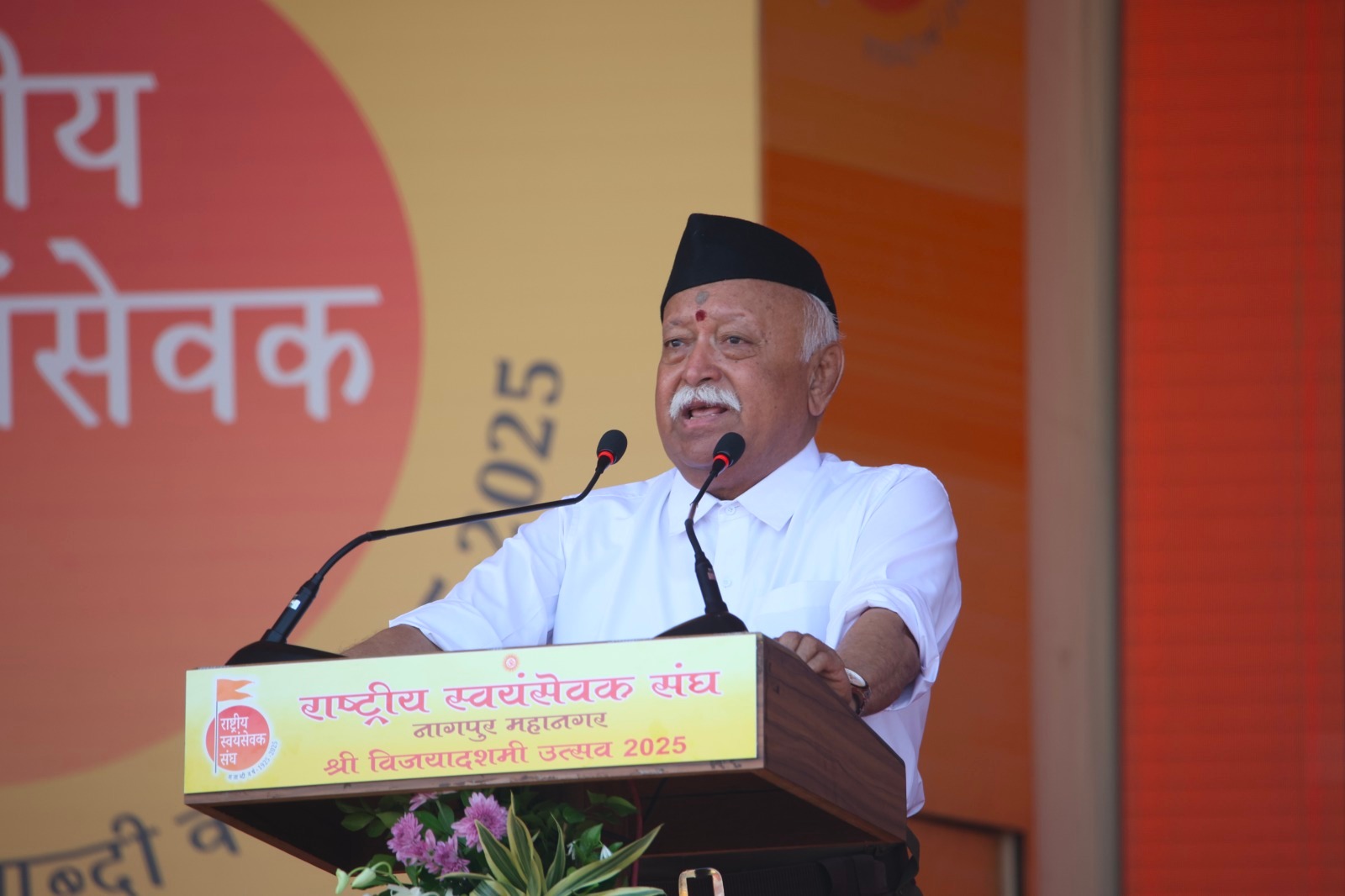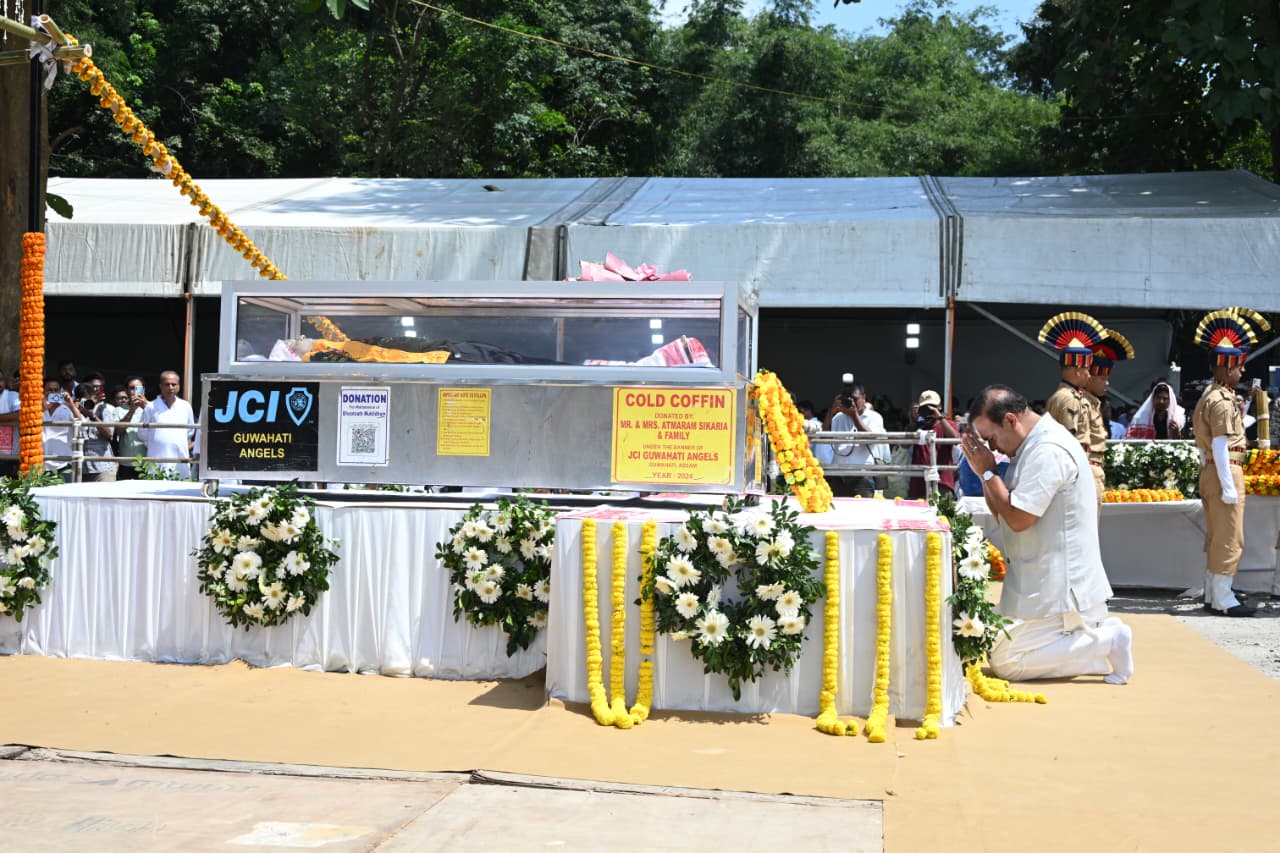Nagpur, October 2, 2025 – On the auspicious occasion of Vijaya Dashami, the Rashtriya Swayamsevak Sangh entered its centenary year with a solemn and inspiring address by Sarsanghchalak Dr. Mohanrao Bhagwat in Nagpur. The event carried historic resonance, as the day also marked the 350th martyrdom anniversary of Guru Tegh Bahadur ji, the birth anniversary of Mahatma Gandhi, and the birthday of Lal Bahadur Shastri ji—three towering figures of sacrifice, truth, and devotion to the nation.
In his address, Dr. Bhagwat reflected upon the hundred-year journey of the Sangh and its relevance in the present context. He recalled the recent Maha Kumbh at Prayagraj, which became a world record in collective organisation and devotion, and contrasted it with the painful terrorist attack on Hindu pilgrims in Pahalgam, underlining the need for vigilance and stronger security capacities. While noting that naxalism is receding, he emphasised the continued importance of justice, development, empathy, and harmony in those regions.
Speaking on the economy, he acknowledged signs of progress but warned against rising inequality, exploitative structures, and ecological harm. He called for a Swadeshi and self-reliant model of growth that balances prosperity with sustainability, citing the recent climate crises in the Himalayas as a warning signal not just for Bharat but for the entire world.
Dr. Bhagwat expressed concern over political instability in Sri Lanka, Bangladesh, and Nepal, stressing that transformation must always come through democratic means and never through violence. In a wider global context, he observed that wars, consumerism, family disintegration, and ecological destruction are creating crises across the world. In such times, he said, the world increasingly turns towards Bharat’s civilisational philosophy for a sustainable and harmonious way of life.
The Sarsanghchalak reiterated that Bharat must develop its own holistic development model rooted in Dharma and cultural ethos. True change, he said, will come not merely from reforms of systems but from the building of individual character. The shakha system of the Sangh, with its discipline, training, and ethos of service, was described as a proven framework for nurturing such transformation.
Recalling the vision of Dr. B. R. Ambedkar, he reminded that the foundation of national unity lies in Bharatiya Sanskriti and cultural roots. Hindu society, he stressed, is inclusive by nature and is the custodian of Vasudhaiva Kutumbakam—the spirit of one world family. Respect for diversity, adherence to lawful conduct, and rejection of violence were highlighted as the bedrock of social harmony.
Marking the centenary, Dr. Bhagwat announced the Sangh’s focus on five areas of transformation: social harmony, preservation of family values, environmental protection, fostering selfhood and self-reliance, and fulfilment of civic, legal and constitutional duties. These, he said, will be advanced not through slogans but through the living conduct of swayamsevaks who inspire society by their example.
Concluding his address, Dr. Bhagwat urged Bharatiyas to treat the centenary not only as an occasion of celebration but as a moment of solemn resolve to strengthen Dharma, unity, and national character. With the stirring call of “Bharat Mata ki Jay,” he envisioned a future where Bharat once again emerges as a guiding light for humanity, offering the world a path of peace, restraint, and holistic progress.



